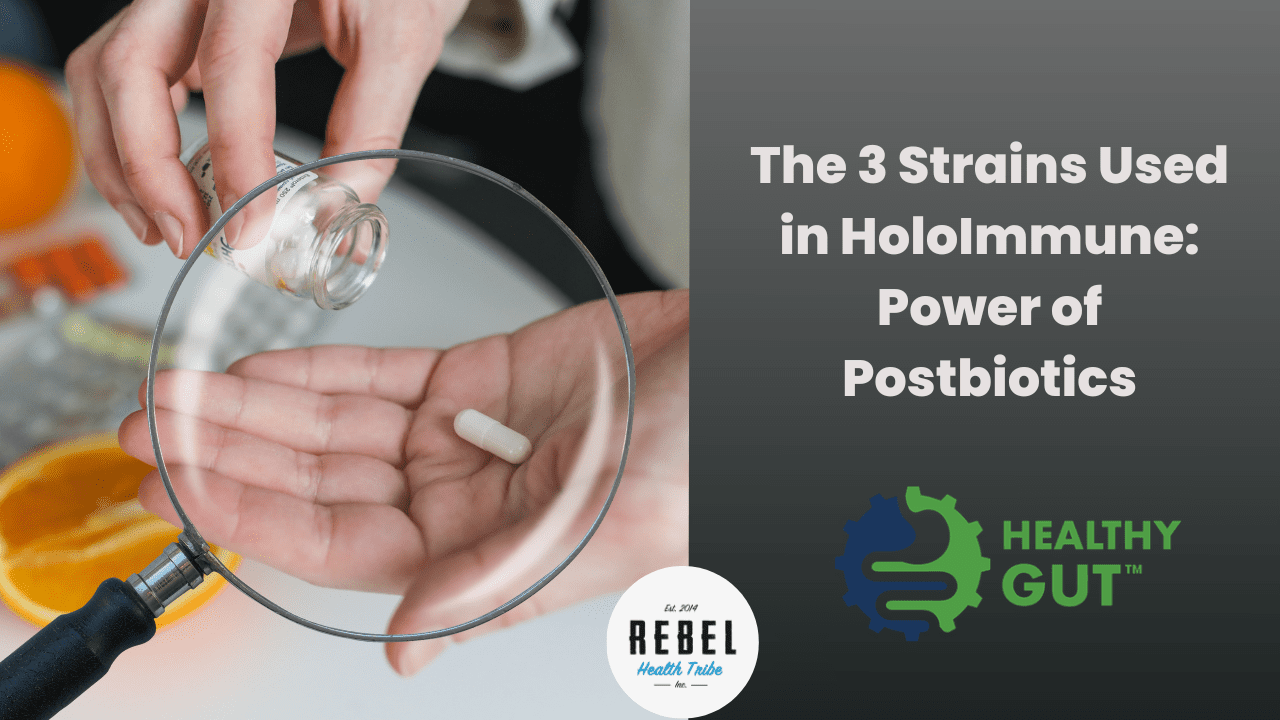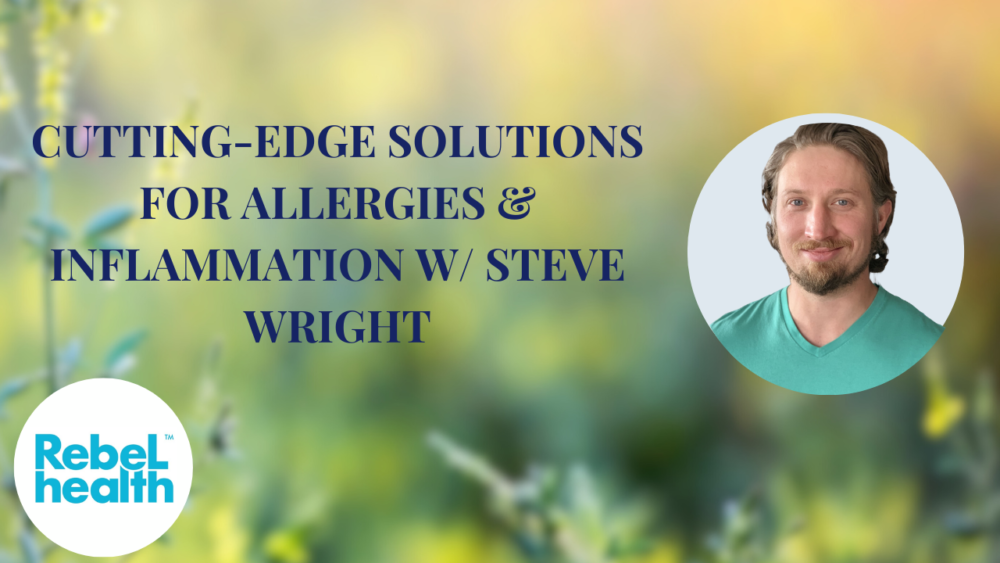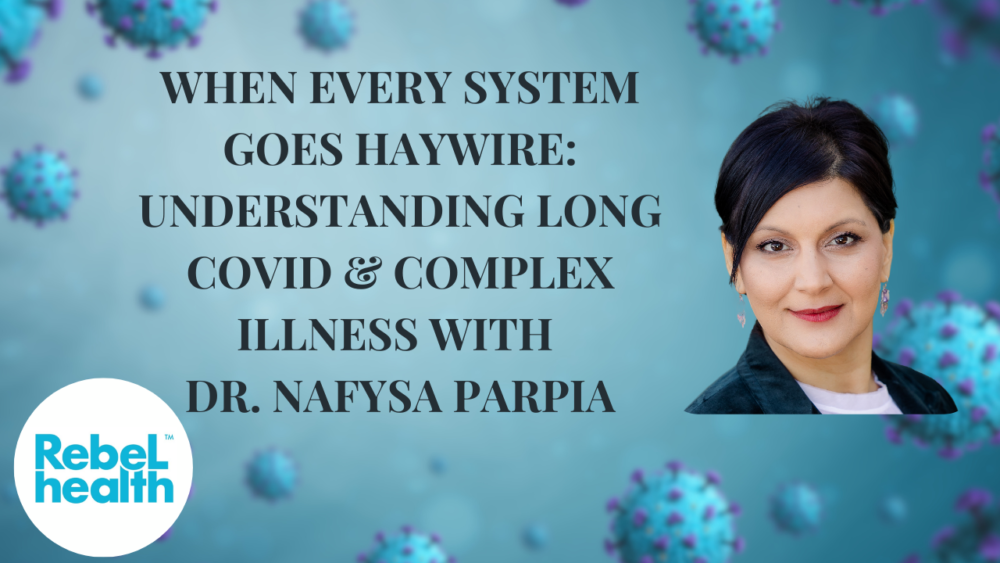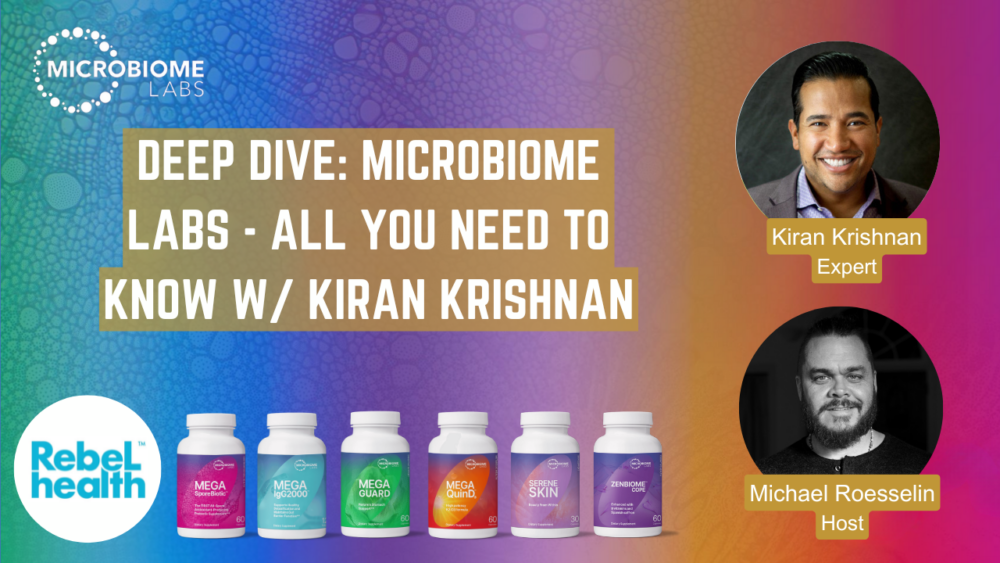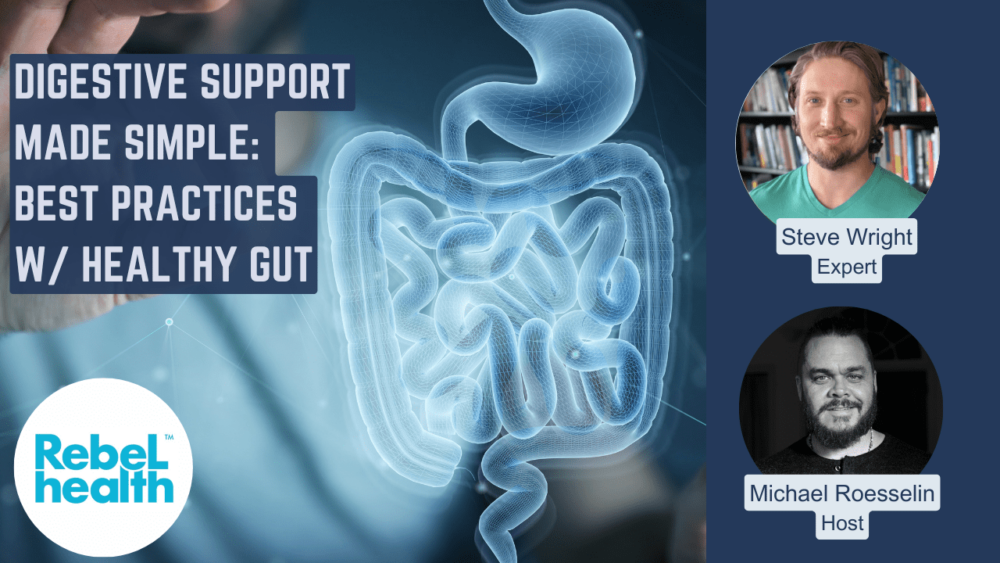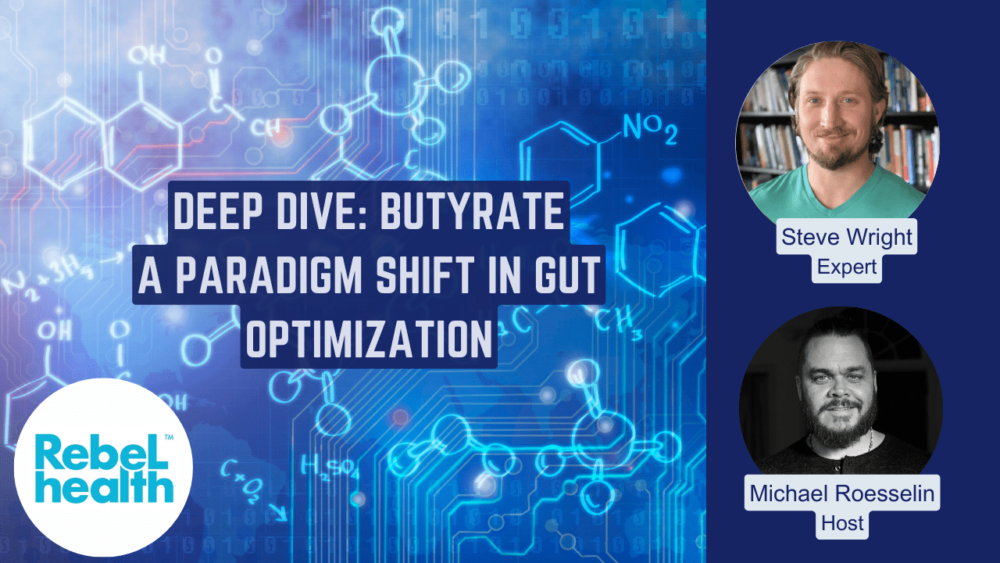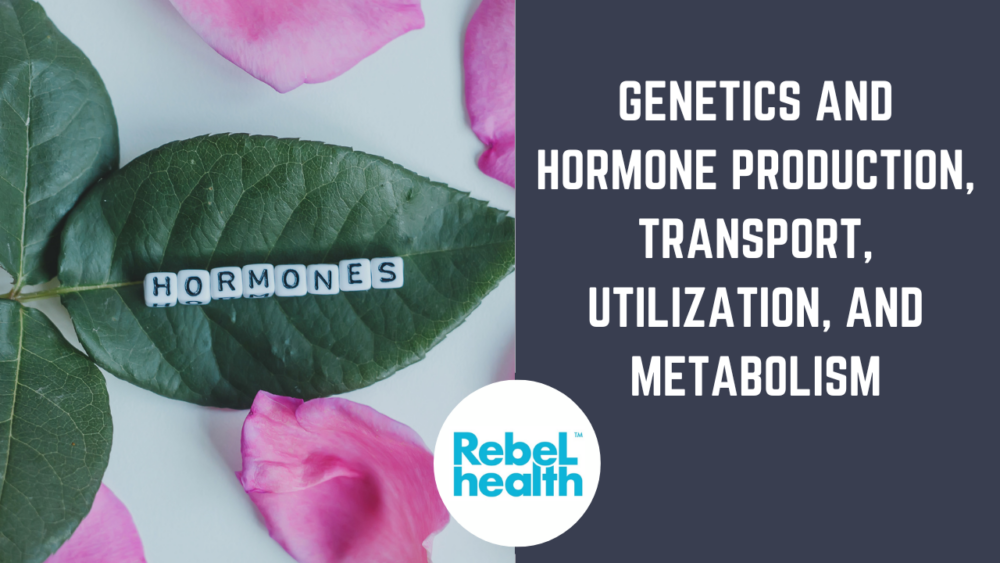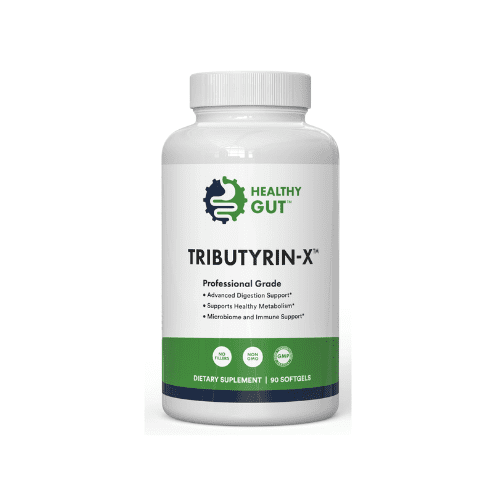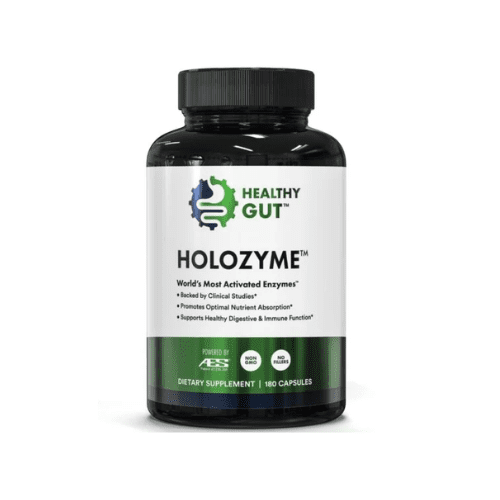Michael Roesslein:
Let’s jump into prebiotics. Pre usually means before, but in this instance this is food for bugs. And so prebiotics can be foods, prebiotics can be supplements. A lot of people with digestive issues who are in our audience may shudder at the idea of prebiotics because they’ve eaten the wrong foods or taken the wrong prebiotics. And if they have something like SIBO or some other overgrowths in their gut, this could have caused a very distended belly and problems with digestion. So can we just do a quick, what are prebiotic foods and supplements and why do a lot of people with GI issues have problems with these foods? And then on the flip side of that, the conundrum is that these things are essential for healing the gut from the problem that doesn’t allow them to consume them. So let’s just jump into that.
Kiran Krishnan:
Yeah, exactly. Okay, so a few things there. Number one, so prebiotics, and there is a specific definition for prebiotic as well. There are certain ingredients that have been authorized to be called prebiotics. So things like inulin, oligosaccharides, normally the things that are authorized to be called prebiotics are smaller molecular weight but highly complex structures. So they have all of these really complex carbon bonds in their glucose or fructose monomer structures, which means that every prebiotic and carbohydrate and all that are made up of glucose or fructose or galactose monomers. So these are individual units of sugar that are bound together with complex bonds. So the most basic carbohydrates are the things that we call high glycemic carbohydrates, tend to have very simple structures, so they break down easily and release a lot of sugar. So when you think of simple carbs versus complex carbs, so that’s where the idea of complex came from. It’s referring to the complexity of the bonds that make up the carbohydrate.
And the more complex it is, the harder it is for the human to digest because we are really terrible at breaking down carbohydrates, complex carbohydrates. So we don’t have a lot of enzymes to be able to do it. So any complex carbohydrate or prebiotic basically goes past our small intestine undigested, goes into the huge array of microbes in our large intestine, and inevitably there’s going to be some microbe in there that has the capability of breaking that down because they produce the right enzyme, and then as a result they will metabolize that. But prebiotics and fibers are a little bit different. So prebiotics, as I mentioned, tend to be more complex, smaller molecular weight compounds that are found in very specific types of foods, and then fibers tend to be roughage. And they’re not as complex as prebiotics, but still the human system can’t digest them well.
Fibers are soluble or insoluble, meaning they can either bind water or they don’t bind water. And it’s important to get a mix of soluble and insoluble fiber into your diet. So fiber is something as simple as cilium husk, for example. So cilium husk or the husk of brown rice and so on, those are all fibers. We don’t digest it well. It moves through the bowel, it does help motility in the bowel for most people. And the difference between a fiber and a prebiotic is a fiber can typically be consumed by lots of different types of bacteria in the gut. A prebiotic is normally going to be consumed by only a smaller class of bacteria, and that’s because a prebiotic is even more complex in its structure than the fiber is. So as a human trying to have a healthy digestive system and a healthy microbiome, you do need both.
You need fiber, soluble and insoluble versions, and you do need prebiotics as well. It’s easy to get some of those from food. If you’re good at following your nutrition, monitoring what you’re eating, calculating things, I always think in the case of both of those you should supplement, because they are really important for longevity. They’re really important for your microbiome. They’re really important for building resilience so that your body can handle stress and things like that. And so it’s really hard to really measure that you’re getting adequate amounts of these things. You should always be conscious of eating high fiber, high prebiotic foods. You should try to add those into your diet as much as you can, but I always recommend supplementation.
Now, let’s talk about when these things go wrong. So with someone with SIBO, for example, they have small intestinal bacterial overgrowth. So they have two issues. Really they have three issues that are really significant. They have, number one, too many microbes in the small intestine. So the small intestine is supposed to have a relatively low number of microbes. And this number may not mean much to people, but it’s like 10 to the four CFUs per gram. And that can be as little as the number of microbes you might have on your desk, for example. So it’s not a very microbially rich environment, even though it’s a great place for microbes to grow. The reason it’s not microbially rich is because your body has a number of ways of combating against overgrowth in that space. And when those things start to falter, you start to get overgrowth. We’ve talked about SIBO in the past that people can refer to. So problem number one, they have too many microbes.
Problem number two, they have the wrong microbes. Normally you end up with gram-negative bacteria versus gram-positive bacteria. And problem number three, when you have too many and too much of the wrong microbes in the small bowel, you also end up with leaky gut. So that’s a triple whammy for them, and this is why fibers and prebiotics can often cause a negative reaction. So what happens with those individuals is they consume these carbohydrates, the fibers, the prebiotics, and instead of passing through the small bowel where there’s a very low number of microbes, not a lot of complexity, and making its way to large bowel, it does start to get fermented and digested in the small bowel, because there’s lots of microbes and there’s different microbes than normal. As a result, you start getting gas and bloating, and many of the microbes that are dysbiotic don’t produce the beneficial items from digesting carbohydrates, they produce things like gas, like hydrogen gas, methane gas, and so on, instead of things like short chain fatty acids and enzymes and peptides and so on that they’re supposed to be making.
So here’s a problem with that entire concept, though. So then the solution tends to be, let’s avoid the carbohydrates completely because we don’t tolerate them well. Well, when you avoid them, the microbes in the large bowel, which is the predominance of microbes that live in your gut, that predominantly eat these kind of compounds, are getting starved out. So you’re losing a lot of keystone species in all that. So then to me the real approach is to use competitive microbes that will compete against overgrowing bacteria in the small bowel. So things like the spores and saccharomyces boulardii and certain strains of lactobacillus uteri, for example. There’s some studies showing that it can compete against microbes in the small bowel. So those things start competing against those microbes to bring their numbers down, but continue to add in very small amounts throughout the day of prebiotics and fibers as well.
Because you have to feed the microbes in the large bowel, because that’s where you get butyrate, that’s where you get propane and acetate and short chain fatty acids, which are then important to heal the lining of the gut that’s now leaky because of your overgrowth. So the tolerance issue may need to be dealt with from a perspective of simply tolerating small amounts of these fibers and prebiotics. Yes, it’s uncomfortable. Yes, you get bloating, but if it’s not posing a significant health risk, you’re not anaphylactic, you’re not getting a big allergic reaction, all that. You’re bloated and distended and cosmetically that doesn’t look good, you don’t feel good, but you may have to deal with that for a period of time to get some of those fibers and prebiotics into the large bowel, which is where they’re really needed. And if you go for prolonged periods of time with not feeding those microbes with fibers and prebiotics, you’ll have far more complicated health problems than just the SIBO and overgrowth.






